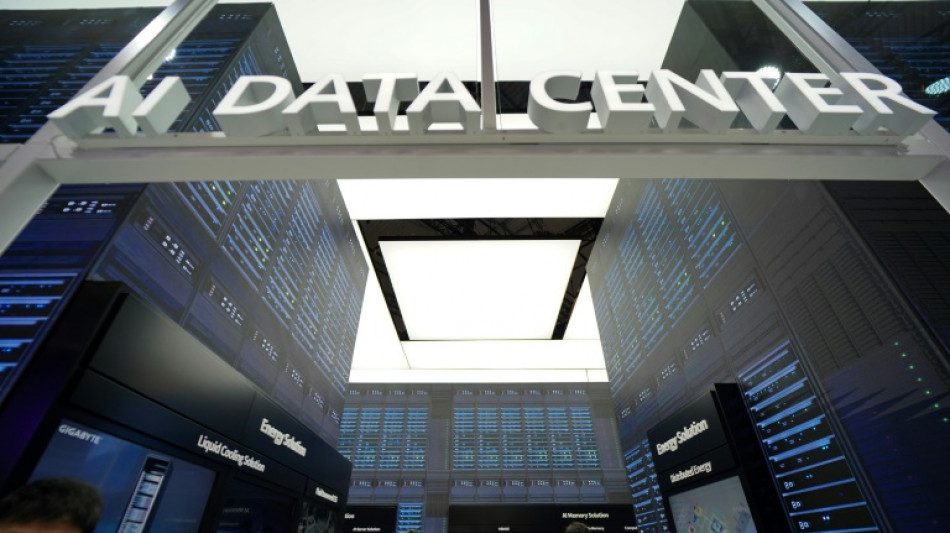
CMSC
0.0900

The credibility of climate pledges by the world's tech giants to rapidly become carbon neutral is fading fast as they devour more and more energy in the race to develop AI and build data centres, researchers warned Thursday.
Apple, Google and Meta said they would stop adding CO2 into the atmosphere by 2030, while Amazon set that target for 2040.
Microsoft promised to be "net negative" -- pulling CO2 out of the air -- by the end of this decade.
But those vows, made before the AI boom transformed the sector, are starting to look like a fantasy even as these companies have doubled down on them, according to independent analysts.
"The greenhouse gas emissions targets of tech companies appear to have lost their meaning," Thomas Hay, lead author of a report by think tanks Carbon Market Watch and NewClimate Institute, told AFP.
"If energy consumption continues to rise unchecked and without adequate oversight," he added, "these targets will likely be unachievable."
The deep-dive analysis found the overall integrity of the climate strategies at Meta, Microsoft and Amazon to be "poor", while Apple's and Microsoft's were deemed "moderate".
When it came to the quality of emissions reduction targets, those of Meta and Amazon were judged "very poor", while Google and Microsoft scored a "poor" rating. Only Apple fared better.
The expanding carbon footprint of the five top tech behemoths stems mostly from the breakneck expansion of artificial intelligence, which requires huge amounts of energy to develop and run.
Electricity consumption -- and the carbon emissions that come with it -- has doubled for some of these companies in the last three or four years, and tripled for others, the report found.
The same is true across the sector: operational emissions of the world's top 200 information technology companies was nearly 300 million tonnes of CO2 in 2023, and nearly five times that if the downstream use products and services is taken into account, according to the UN's International Telecommunications Union.
If the sector were a country, it would rank fifth in greenhouse gas emissions ahead of Brazil.
Electricity to power data centres increased on average 12 percent per year from 2017 to 2024, and is projected to double by 2030, according to the IEA.
- 'Quite unregulated' -
If all this extra power came from solar and wind, CO2 emissions would not be rising.
But despite ambitious plans to source their energy from renewables, much of it is still not carbon neutral.
Studies estimate that half of the computing capacity of tech companies' data centres comes from subcontractors, yet many companies do not account for these emissions, the study points out.
The same is true for the entire infrastructure and equipment supply chain, which accounts for at least a third of tech companies' carbon footprint.
"There is a lot of investment in renewable energy, but overall, it has not offset the sector's thirst for electricity," Day said.
Given the status of AI as a driver of economic growth, and even as a vector for industrial policy, it is unlikely that governments are going to constrain the sector's expansion, the report noted.
"So far the whole AI boom has been altogether quite unregulated," Day said.
"There are things these companies can and will do for future proofing, to make sure they're moving in the right direction" in relation to climate goals, he added.
"But when it comes to decisions that would essentially constrain the growth of the business model, we don't see any indications that that can happen without regulatory action."
The report identifies a number of ways in which the tech sector can curb its carbon footprint, even as it develops AI apace.
Ensuring that data centres -- both those belonging to the companies as well as third party partners -- run on renewable electricity is crucial.
Increasing the lifespan of devices and expanding the use of recycled components for hardware production could also make a big difference.
Finally, the methods use for calculating emissions reduction targets are out-of-date, and in need of revision, the report said.
J.Simacek--TPP